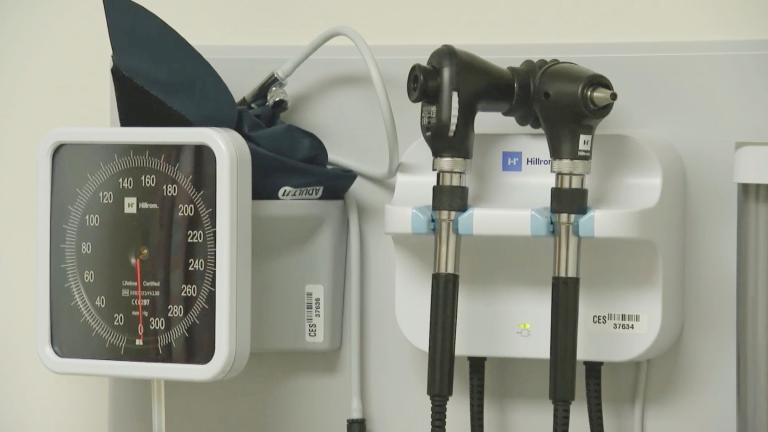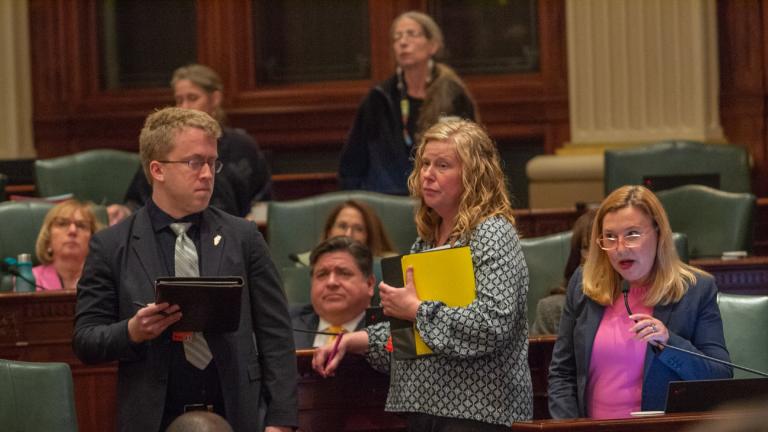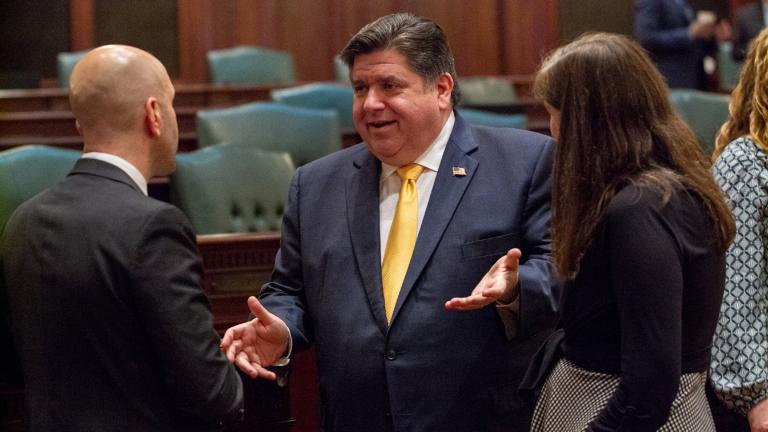You’ve probably been hearing about the Chicago Bears and White Sox stadium goals.
They’re not the only ones making a pitch for publicly financed stadiums.
Laura Rickets, lead investor of the Chicago Red Stars women’s soccer team, said she wants in on the game — and has been meeting with state lawmakers to make her case that a move out of the team’s southwest suburban Bridgeview stadium is necessary.
Crain’s Chicago Business is also reporting that the Chicago Cubs are seeking $30 million in taxpayer money to increase security around Wrigley Field.
But as all these plans were being pitched, Gov. J.B. Pritzker seemed to call a time out.
“I think I’ve been fairly clear about the fact that the taxpayers’ dollars are precious,” Pritzker said in response to a reporter’s question at an unrelated event. “And the idea of taking taxpayer dollars and subsidizing the building of a stadium as opposed to, for example, subsidizing the building of a birthing center, just to give the example, does not seem like the stadium ought to have higher priority.”
Rosemont Mayor and state Rep. Brad Stephens (R-Norridge) is one of the lawmakers who met with White Sox Chairman Jerry Reinsdorf in Springfield last week.
“There are times where public funding for these types of projects makes sense if it results in long-term gains for taxpayers,” Stephens said. “It’s hard to judge at this point if these projects provide that benefit. There has to be a deep dive into the funding mechanism, and those numbers need to be conservative in my opinion. Underpromise and overdeliver.”
State Rep. Kam Buckner (D-Chicago), who played college football at the University of Illinois, was also on hand to welcome Reinsdorf when he arrived in Springfield. Despite Buckner’s distinguished career in athletics, he also voices caution on the Bears and White Sox stadium proposals.
“I’ve been on record that public financing for private stadiums is historically problematic and that the taxpayers of Illinois have to be protected no matter what,” Buckner said. “I also think there may be creative and prudent ways to create some partnerships between the state and these organizations.”
Democratic State Rep. Mark Walker, whose district includes Arlington Park, now owned by the Chicago Bears and being considered for a new stadium, believes there are ways to make sure that both the teams and taxpayers win.
“The Bears and Sox proposals are attractive and wide-ranging,” Walker said. “They both will allow for multi-level economic development and potential investments in commercial and housing spaces. Many of those plans are clearer for the Bears than for the Sox because the Bears have been discussing their vision for months now, while we have only very recent ideas from the Sox. We will need either of these plans to create a win for all surrounding communities or they will not be supported.”








